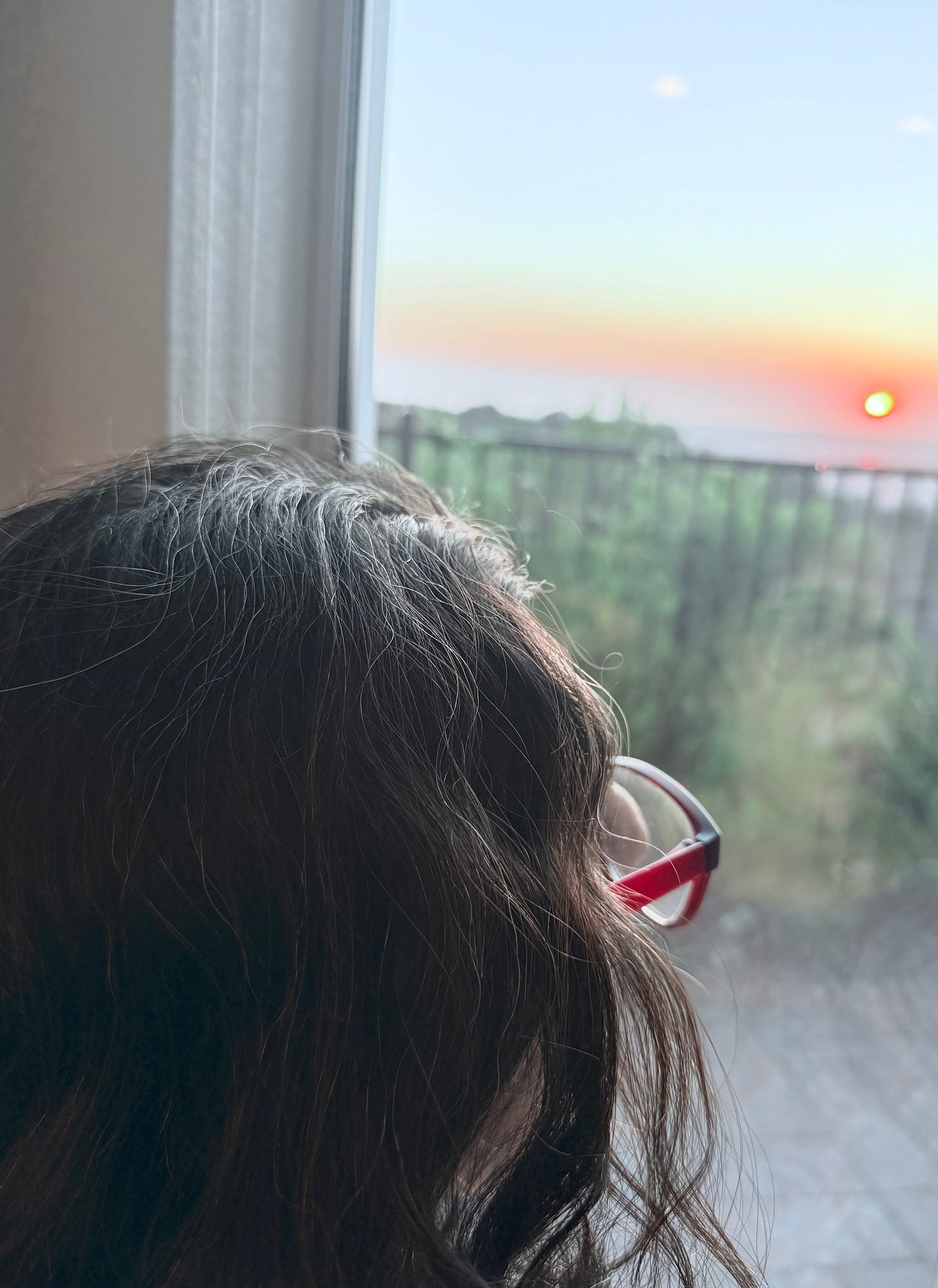Embracing the Gray: Why It Was So Hard for Me to Stop Coloring My Hair
When I stopped coloring my gray hair, I expected to feel older, invisible, maybe even judged. What I didn’t expect was how free I would feel. This my journey — and a note to a dear friend
I started coloring my hair for fun in my late 20s and early 30s. As a teenager, I never had the resources to experiment with my look, so this was my playful rebellion — streaks of red, burgundy, even blonde at times. It felt liberating.
Then, fun turned into necessity.
By my late 30s, I was graying. It felt too early, but it wasn’t entirely surprising. My mother and sister both had premature grays. I remember my mom asking me to pluck silvery strands from her long, lustrous black hair. In contrast, my own hair was short, rough, and grays didn’t arrive one at a time — they appeared in random, stubborn patches.
I colored them. It worked… for a month or two. Then the grays returned like weeds — persistent, unwelcome, and glaring. So I colored them again. And again. And again. For three years.
I was exhausted.
The upkeep was relentless, the cost added up, and my hair began to suffer — dry, frizzy, lifeless. Layer upon layer of dye left me unable to recognize what my real hair even looked like. I started searching for alternatives. My mom used mehndi — henna — a natural dye. I tried that too.
But it was a lot of work. In Indian culture, mehndi is considered a “cooling” ingredient — believed to bring down body heat — which is why it’s traditionally avoided during winter months. And I found that to be true. In winters, I’d catch a cold every time I used it. In the summer, I was fine — but my bathroom would be left stained and messy every time I rinsed it out.
One day, I was in the bathroom scrubbing the sink, muttering to myself. My husband found me there, a whirlwind of frustration.
"I wish I had black hair like my Asian friends," I said. "Or blonde hair like my American friends."
He paused. Then quietly asked, “Would you trade your internal traits with them? Your kindness? Your persistence?”
“No,” I replied.
“Then why this? Why give so much weight to a physical trait?”
“Because I want to look pretty. I want to look young.”
“You are the age you are,” he said gently. “And you’re pretty enough for me — gray hair or not.”
“I want to be pretty per society standards,” I said.
“Why? And who made those standards?”
“You don’t get it,” I said. “For women, looks equate to value. Confidence. Worth.”
He looked at me. “So your intelligence, your empathy, your generosity — they mean nothing because you have gray hair?”
I was quiet.
He asked, “Would you judge someone else that way? That they’re lazy or less worthy because they have gray hair?”
“No,” I whispered.
“Then why think that about yourself?”
I looked up at him from the shower floor.
“You have the power to let go,” he said. “Don’t give that power to anyone else.”
He helped me up. I walked over to the cabinet, took out the boxes of mehndi, and tossed them in the trash.
That was three years ago.
I haven’t colored my hair since.
And here’s what I’ve learned:
The world didn’t fall apart when I stopped coloring my hair. No one gasped in horror. If anything, I’ve felt lighter — freer. I still have days when I look in the mirror and wish for the smooth, shiny black of my youth. But more often, I see a version of myself that feels honest. I would not trade the gray — for I have also earned wisdom along the way.
I write this for a dear friend who is also trying to make this journey. You’re not alone.



Shivani, again this is wonderful. I went through the same reasoning exactly, of course I am much older then you but the feelings at 65 to stop coloring my hair when I retired was a difficult one. I had been doing it for at least twenty years! You express these feelings exactly and thankfully you have a wise, loving husband to reassure you. Bonnie at 73 still colors her hair because her daughter doesn't want to look older! LOL